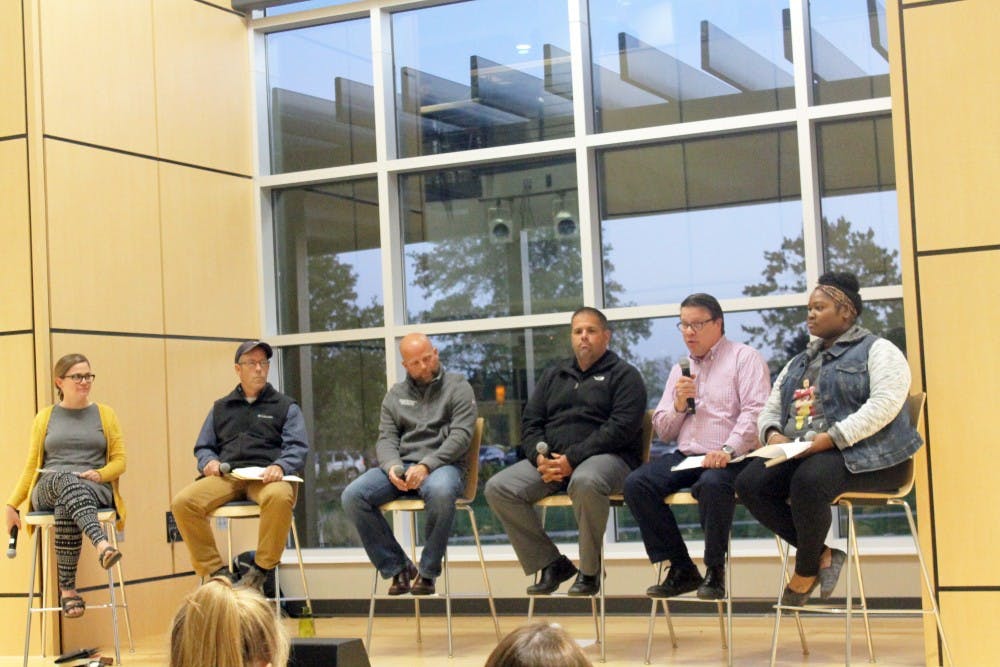By Editorial Board | Echo
"Many people have voices, but nobody hears," said Professor Bob Aronson.
Last Tuesday night, TSO Global Engagement hosted a panel on Wheeler Stage to discuss the #TakeAKnee protests. Joining moderator Amy Peterson was Professor Jim Spiegel, Men's Soccer Head Coach Gary Ross, Director of Intercollegiate Athletics Kyle Gould, Professor Bob Aronson and OIP Assistant Director Bria Howard.
Among other issues, the panelists discussed the purpose of the protest, potential solutions to systemic racism and how Christians should respond. A few key considerations were raised.
Colin Kaepernick's original intent was clearly stated. His choice to kneel had nothing to do with President Trump or our nation's military - it was in protest of police brutality against African-Americans. You may have heard the story by now: Kaepernick sat for two weeks before ex-Green Beret Nate Boyer penned him a letter. The two of them concluded that kneeling during the anthem could convey reverence for our nation's military and would still get his point across.
Unfortunately, that thoughtfulness and intentionality has become somewhat lost in a sea of angry voices. Perhaps it's the visibility and ambiguity of protest on our sacred gridiron. Maybe it's that so many are quick to speak and slow to listen.
And the national anthem means different things to different people. For some, it is directly connected to a family member serving overseas, and any protest connected to the song could be viewed as ungrateful. For others, protest during the anthem is a way to indicate that not every American citizen experiences the freedoms promised by the song.
How should Christians respond? Christians are found vocal on all sides. It's worth considering why evangelicalism is often paired with nationalism, despite an allegiance to an other-worldly kingdom. It's also worth considering what place civility should have in a protest, and to what extent these protests parallel or don't match the protests of the modern civil rights movement.
Certainly, we can conclude Christianity compels us to listen to one another carefully, not merely to respond, but to understand. It would be frankly unloving to call anyone's frustration illegitimate.
Among such frustrations is one that's voiced by many and isn't always heard: no clear solutions are being presented to fix systemic racism. It's worth questioning whether there are specific, easily implementable solutions. But was the #TakeAKnee panel a waste of time? And what does the answer say about the importance of discussion more generally?
Here are a few concluding questions for you to consider:
- If clarity of agenda has been somewhat lost, is a protest still effective?
- To what extent should Kaepernick have to face the consequences of a National Football League that disagrees, regardless of his aim's legitimacy?
- What does President Trump's rhetoric do to situations such as these?





